
Cuisine
Mauritian cuisine
Mauritian cuisine is characterized by its use of spices, particularly curry powder, which is a staple in many dishes. Seafood is also a major component of the cuisine, with dishes such as fish vindaye (a spicy fish curry) and octopus curry being popular. Other popular dishes include dholl puri (a type of flatbread), gateau piment (a type of fried snack), and rougaille (a tomato-based sauce).
Typical ingredients
Seafood (including fish, octopus, prawns), Chicken, Beef, Lamb, Lentils, Chickpeas, Rice, Potatoes, Tomatoes, Onions, Garlic, Ginger, Curry powder, Coriander, Cumin, Turmeric
Presentation and garnishing
Presentation and garnishing are a major focus in Mauritian cuisine, with dishes often being decorated with colorful fruits and vegetables.
Mauritius is known for its unique wildlife, including the dodo bird, which is now extinct.
More cuisines from this region...
South African cuisine, Malagasy cuisine, Malawian cuisine, Mozambican cuisine, Seychellois cuisine, Zambian cuisine, Zimbabwean cuisine, Botswana cuisine, Namibian cuisine, Cuisine of Eswatini
History
The history of Mauritian cuisine is closely tied to the island's history of colonization and trade. The cuisine has been influenced by Indian, Chinese, African, and European cultures, as well as the island's own unique flora and fauna. The use of spices, for example, is thought to have been introduced by Indian and Arab traders, while the use of seafood is a reflection of the island's location in the Indian Ocean. The cuisine also reflects the island's history of slavery, with dishes such as rougaille being a staple of the slave diet.
Cultural significance
Mauritian cuisine is an important part of the island's culture and identity. Many traditional dishes are associated with specific regions or ethnic groups, and are often served at festivals and other celebrations. The cuisine is also an important part of the island's economy, with many local ingredients such as seafood and fruits being major exports.
Health benefits and considerations
Mauritian cuisine is generally healthy, with an emphasis on fresh, locally-sourced ingredients. However, some dishes may be high in fat or salt.
Mauritian cuisine dishes Browse all »

Makawoni au graten
Makawoni au Graten
Makawoni au graten is a traditional dish from Mauritius that is made with macaroni, cheese, and a variety of vegetables.

Bouillon brede
Mutton soup
Bouillon brede is a traditional Mauritian soup made with spinach and seafood.

Moka
Moka is a traditional coffee drink from Turkey. It is made by boiling finely ground coffee beans in a special pot called a cezve and then serving it in small cups with a...
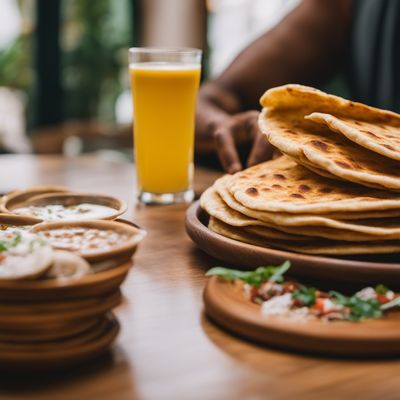
Roti chaud
Roti chaud is a type of flatbread that is popular in Mauritius. It is soft and fluffy on the inside with a crispy crust on the outside. It is often served with curries and...

Kachourie
Kachourie is a popular street food in Trinidad and Tobago, made with split peas and spices.
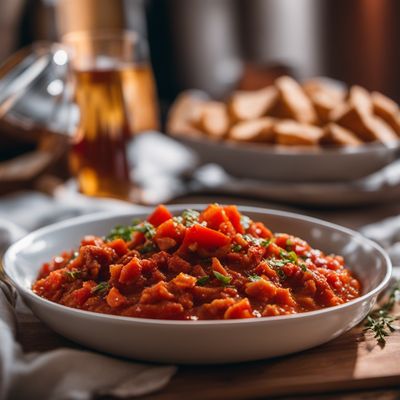
Rougaille
Rougaille is a classic Creole dish that is made with tomatoes, onions, and a variety of spices. The dish is hearty and flavorful, and is perfect for a cozy dinner at home.

Gateaux piments
Chili cakes
Gateaux piments are a popular snack in Mauritius made with split peas and spices. They are crispy and spicy and are often served with a side of chutney.

Dholl puri
Dholl Puri
Dholl puri is a traditional Mauritian dish made from yellow split peas and flour. It is a type of flatbread that is often served with curry dishes.
Mauritian cuisine recipes Browse all »

Mauritian Spinach Stir-Fry
Savory Spinach Delight: A Mauritian Twist on Cheera Thoran
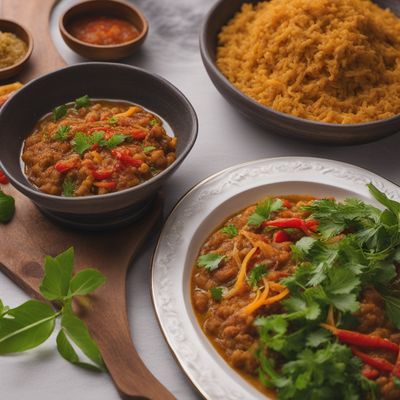
Homemade Mauritian Farata
Flaky Delights: Homemade Mauritian Farata Recipe
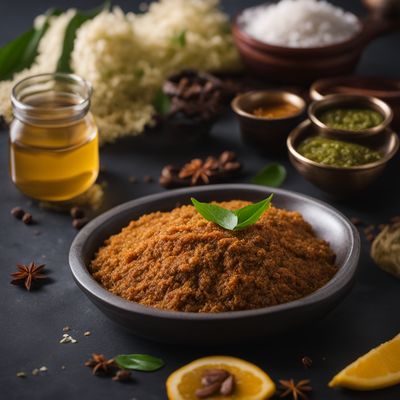
Mauritian Khaja
Flaky Delights: Mauritian Khaja - A Fusion of Indian and Mauritian Flavors
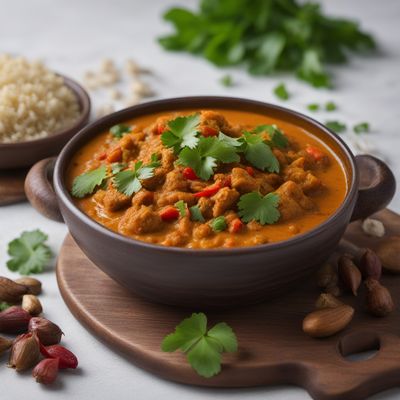
Chochoca Curry with Mauritian Flavors
Mauritian-Inspired Chochoca Curry: A Fusion of Bolivian and Mauritian Delights

Mauritian-style Seafood Stew
Exotic Seafood Delight: Mauritian Brodetto
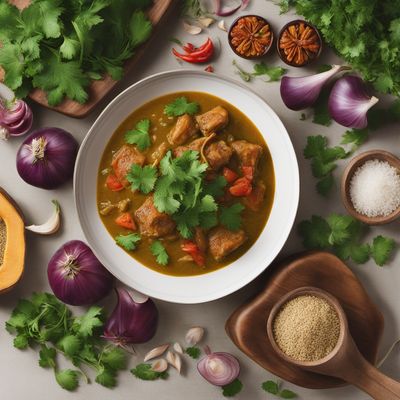
Mauritian Cassoeula
Savory Mauritian Pork Stew with Local Flavors
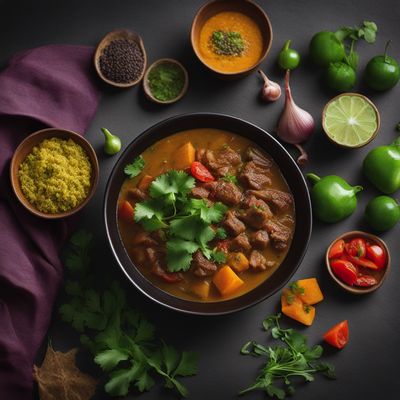
Mauritian Tocană with a Twist
Savory Mauritian Tocană: A Fusion of Flavors

Mauritian Clanger
Savory Delight: Mauritian Clanger - A Fusion of Flavors
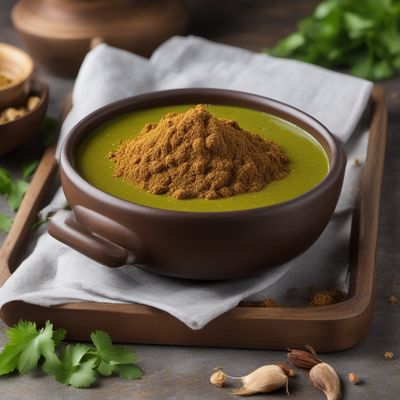
Mauritian Coconut Moka
Tropical Delight: Mauritian Coconut Moka

Mauritian Spiced Apple Fritters
Exotic Apple Delights: Mauritian Spiced Apple Fritters

Roti Chaud with Spiced Potato Filling
Savory Delight: Mauritian Roti Chaud with Flavorful Potato Filling

Mauritian-style Boudin Blanc with Apples
Savory Delight: Mauritian Boudin Blanc Infused with Apple Goodness